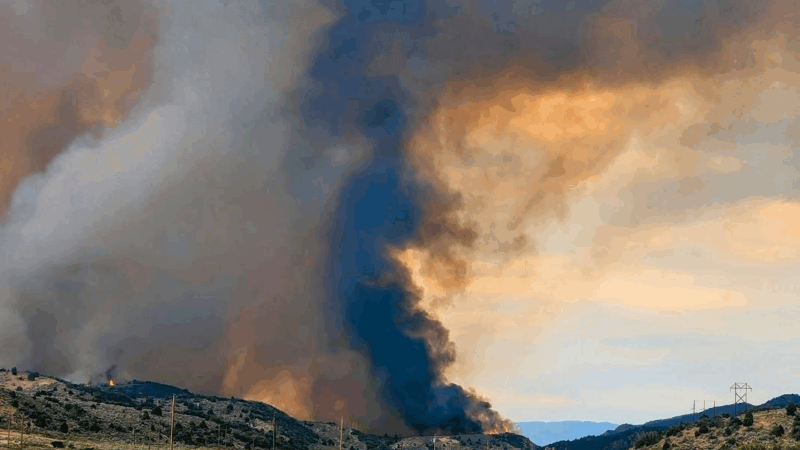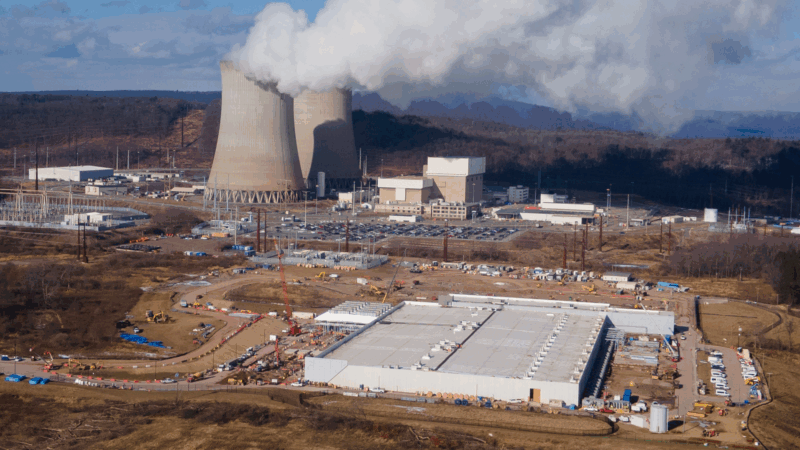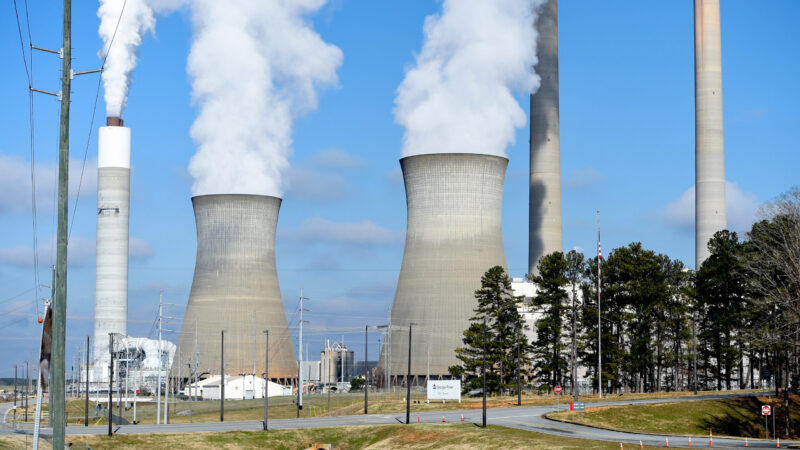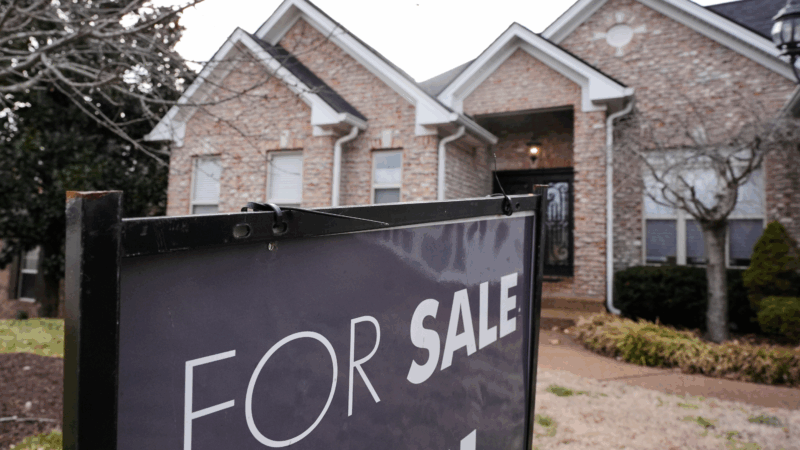Colorado wildfires burn more than 120,000 acres as firefighters await better weather
In western Colorado, firefighters are up against more windy and hot weather as they try to protect homes and oil and gas resources from a pair of lightning-caused wildfires that have rapidly grown in the last few days, consuming more than 120,000 acres so far.
The larger of the two, the Lee Fire, has forced evacuations in two counties, including homes and a prison. At one point it was within one mile of burning into the small ranching and hunting town of Meeker, about 150 miles west of Denver.
“This is the kind of fire that is really driven in part by the significant drought-stressed fuels that are out there,” says Bethany Urban, a fire information officer with Rocky Mountain Area Complex Incident Management Team 3. “It doesn’t actually take that much of a wind to get this fire up and moving in these kinds of fuels.”
When megafires like these ignite in overgrown forests and scrubland, made even more flammable by climate change, there aren’t a lot of options for containing them until there’s a major change in the weather. The Lee Fire is burning through tinder-dry piñon-juniper stands, at times creating dangerous conditions for firefighters trying to protect homes and other infrastructure.
“There have been times where we’ve had to pull firefighters back just to keep them safe,” Urban says.
The good news is that resources are pouring into the region thanks in part to it being a relatively quieter than expected summer wildfire season in the West so far. Michelle Morgan owns the Elk Mountain Inn in Meeker, which is booked solid with fire crews.
“All of these people, men and women, have come from everywhere,” Morgan says. “They were here so fast.”
Late last week, when the fire was closer to Meeker, Morgan packed her car with photo albums, documents and other essentials as residents were told to be ready to evacuate. Crews have since built some containment lines along a state highway buffering the town from the fire, and they’re continuing to douse hot spots, much to Morgan’s relief.
“From town we had a great show of what it was doing,” Morgan says. “That was a little dicey.”
Poor air quality continues to be a concern in western Colorado and in Southern California, where the Gifford Fire has also burned more than 117,000 acres. That blaze, in a remote part of the Los Padres National Forest, has also led to some evacuations.
Firefighters in both states can’t expect a reprieve anytime soon. The weather outlook across the Southwest is for continued hot, dry and windy conditions through this week.
These major issues have brought together Democrats and Republicans in states
Across the country, Republicans and Democrats have found bipartisan agreement on regulating artificial intelligence and data centers. But it's not just big tech aligning the two parties.
Feds announce $4.1 billion loan for electric power expansion in Alabama
Federal energy officials said the loan will save customers money as the companies undertake a huge expansion driven by demand from computer data centers.
Mortgage rates fall below 6% for the first time in years
The average home loan rate has dropped below 6% for the first time since 2022. Will that help thaw the frozen housing market?
Baby Keem’s boulevard of broken dreams
Ca$ino, the rapper's second album for his cousin Kendrick Lamar's label, is whiplash embodied, a mirror for the extreme highs and lows of his Sin City hometown.
Pentagon shifts toward maintaining ties to Scouting
Months after NPR reported on the Pentagon's efforts to sever ties with Scouting America, efforts to maintain the partnership have new momentum
Why farmers in California are backing a giant solar farm
Many farmers have had to fallow land as a state law comes into effect limiting their access to water. There's now a push to develop some of that land… into solar farms.








